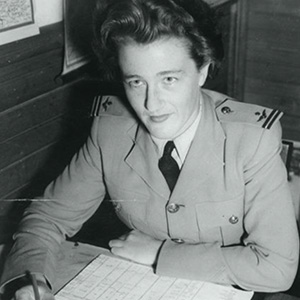

Louis Dai – the life of a documentary filmmaker
Like many journalism students, Louis Dai (TC 2007) started out with a passion for telling stories that needed to be told. However, Louis and his friends David Elliot-Jones (TC 2007) and Lachlan McLeod (TC 2007) would never have guessed that one day they would become documentary filmmakers.
Trinity College caught up with Louis to discuss his career, previous projects and his most recent documentary, Hakamada: A Life on Death Row.
It all began while at university, where Louis, David and Lachlan heard many first-hand stories from international students who were being exploited by the education system in Australia. They saw a story that needed telling, and after a trip to India, they eventually put together a trailer, which they sent to SBS.
This decision, and the need to secure funding, subsequently led to the creation of Walking Fish Productions in 2012, and a partnership with SBS to produce Convenient Education, which was launched online in August 2012 and broadcast in July 2013.
Since then, Louis and his friends have worked as documentary filmmakers, exploring social and political stories from across the globe.
Despite the financial burden that goes with being an independent filmmaker, Louis regards himself as lucky to be pursuing his passion.
‘We’ve all got part-time jobs in order to pay for rent, food and those kinds of things, but I think that’s just the reality of being an independent filmmaker, you’ve just got to hustle and do what you can, because if you’re passionate about what you do, it’s worth it,’ says Louis.
In 2013, the three young men along with their girlfriends moved to Tokyo, Japan, to explore the idea of fame through another documentary Big In Japan.
Big In Japan takes a rather tongue-in-cheek approach to exploring the concept of fame, with David playing both the presenter of the film as well as one of the stars.
‘We instantly approached Dave because we had experiences of travelling with him where people, foreigners, were just drawn to him because he had an interesting look about him,’ says Louis.
However, the project also has a more serious element of exploring the psychology of fame. It addresses the obsession of individuals trying to become famous and the serious psychological consequences this can have.
Louis questions, ‘Why does our society have this ridiculous obsession with wanting to become famous? Why do we want to get as many likes as possible on Facebook?’
Hakamada: A Life on Death Row
It was while working on Big in Japan and teaching English in Tokyo that Louis stumbled upon the story of Iwao Hakamada, a man who had been incarcerated for over 40 years for the murder of his boss’s family.
In 2007, one of the original trial judges, Norimichi Kumamoto, fronted the media and revealed that he had had serious concerns about the evidence used to convict Hakamada in 1968. He had pleaded with the other two judges, but to no avail.
In 2013, a retrial was held after the emergence of new DNA evidence. According to his defence attorneys, the new evidence exonerated Hakamada.
Part of the problem, Louis argues, is that the Japanese criminal justice system disproportionately favours prosecutors. The sheer magnitude of this imbalance of power is demonstrated by the fact that 99.9 per cent of cases that go to trial end up in a conviction.
‘Japanese prosecutors are able to interrogate suspects for up to 23 days. Defence lawyers aren’t allowed to be present during interrogations, there are no electronic recordings and prosecutors are allowed to submit their own re-worded composition of the interrogation as evidence.’
-
What's happening
-
News & Stories
- Anzac Day 2024 – Trinity stories
- Guest preacher Chris Mulherin on the intersection of science and religion
- Meet Foundation Studies student Gabriella Sim
- Meet Foundation Studies student Hanadi Alabdouli
- Meet Foundation Studies student Miguel Valmayor
- Meet Gemma and Frederik Le Mesurier
- Meet visiting professor the Hon Justice Joe Williams
- Pioneering women and the story of Janet Clarke Hall
- Visit David Frazer's new exhibition: All that you've loved
- What is Eid al-Fitr?
- Events
- Art
- Music & Choir
- Campus Development Projects
- Visiting Scholars & Lectureships
- Accommodation for Visitors
- Work at Trinity
-
News & Stories

.jpg?lang=en-AU&ext=.jpg)

